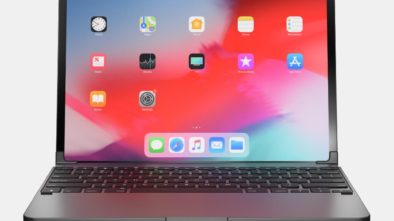Collective Cloud Computing and AI: The Future is Near?
HBO’s smash hit comedy, Silicon Valley, features a storyline about the “new internet,” utilizing the billion plus smart phones in the world as data storage, and thus a backbone to an entirely new internet. The main character, Richard Hendricks (the brilliantly-awkward Thomas Middletich), has devised a new compression scheme that destroys all current methods, and would allow micro-data to be stored on each user’s device with their permission via an app. How realistic is this approach? Should we expect that our devices will eventually share data and storage with a larger collective cloud at some foreseeable point? Yes and no.
Collective Cloud Computing is the future, but not necessarily for a “new internet” as seen on the show. More realistically though, this is how artificial intelligence will take shape, and with correct preset limitations, to grow properly and become much more effective. Instead of piggybacking off of data and storage alone, a realistic future could see micro-processing power-sharing for an AI, or multiple AI’s. Our phones today are faster than a room of computers was in the seventies, and they get progressively faster and more advance with each new generation. In most cases, our phone’s processor is much faster and more capable than we need, except in the cases of some extreme gaming or photo editing applications.
Imagine a cloud-based Siri or Google Assistant, one that would personalize information for you, the individual, but also learn and grow based off of collective searches and usage from every user that opts in. We are in an ever-dependent society that needs to always be connected, so the availability of devices on a 24-hour a day scale worldwide leaves zero downtime across the board. With a billion plus smart phones in use on the planet, that is enough processing power to crush the toughest incomprehensible problems that daunt even the toughest computers and storage/data facilities.
However, with this much horsepower driving a new artificial intelligence, severe limitations must be place on this AI, or much like in the movie Her (director Spike Jonze), the AI could instantly “infect” every connected device on the planet instantly, and mankind would most likely be doomed. However, with the correct protocols in place by the developers, these new AI’s could be limited in growth and self-awareness, and therefore controlled. As many a great scientist has stated publicly, a self-aware artificial intelligence would instantly see in microseconds that mankind is killing itself and the planet, and would choose to eradicate us at that very moment.
The idea on Silicon Valley of our smart devices becoming an internet of its own is much more unlikely, at least as how it is proposed on the hilarious half-hour comedy by producer Mike Judge. Data speed inconsistencies and cell tower strengths could greatly impact the user from accessing his or her data, and we are several generations away from cellular technologies becoming fast enough and wide spread enough to support this. But for cloud computing and artificial intelligence, this is the next step. The future could be very scary if not handled with the proper precautions and care, but done correctly, and we will see the biggest scientific renaissance we have ever seen. Diseases will be eradicated and solved by the simple mass of processing power and intelligence. Problems we can hardly even imagine solutions to, will become easily and readily solved.
The future is rapidly approaching….are you ready?



